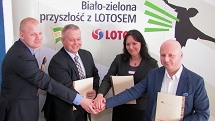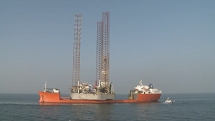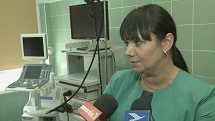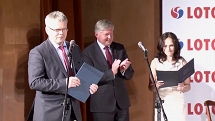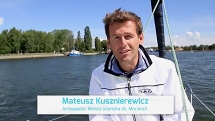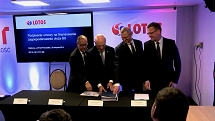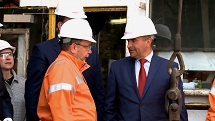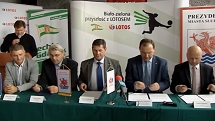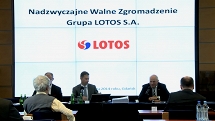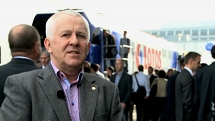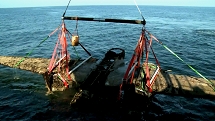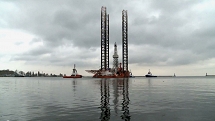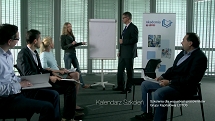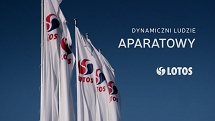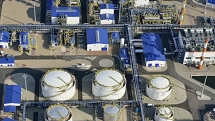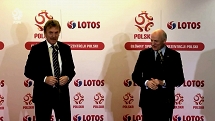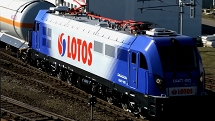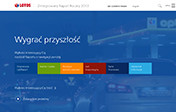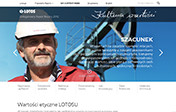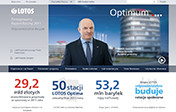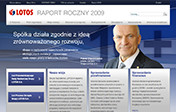-
Financial information
The past year ushered in a series of challenges for the companies in the fuel sector. The decisions made by us have demonstrated that we are able to take rapid steps to adapt to a demanding environment and ensure the desired profitability for our projects.
-
Segment performance
The segmental management model we have implemented enhances management efficiency, delivering cost and revenue synergies across the organization.
-
Letter from the Vice-President of the Board
2014 ushered in a series of challenges for the companies in the fuel sector. The decisions made by the LOTOS Group have demonstrated that we are able to take rapid steps to adapt to a demanding environment and ensure the desired profitability for our projects.
-
Business environment
The key factor that had a strong impact on both the global and Polish petroleum markets in 2014, with significant consequences for the LOTOS Group’s performance, was the price of crude oil, which also determined the price of petroleum products.
-
Strategic objectives
The LOTOS Group’s Strategy is designed to strengthen our position as a strong, innovative and efficient business which plays a major role in ensuring national energy security.
-
Business model
Our operations consist in crude oil production and processing, as well as wholesale and retail sale of petroleum products, among which are: fuels (unleaded gasoline, diesel oil and light fuel oil), heavy fuel oil, bitumens, aviation fuel, naphtha, propane-butane LPG and base oils.
-
Risk and opportunities
At the LOTOS Group, we identify a range of diverse risks, which may affect all areas of our business. The key risks in terms of their impact on our operations are the financial risks as well as risks affecting the exploration and production area. In the analysis of the risks, we also factor in issues related to sustainable development.
-
Key data 2014
With revenue of ca. PLN 28.5bn in 2014, we rank fourth in the group of 500 largest businesses in Poland.

Commitment to sustainable development
The Supervisory Board and its committees are an important element of the system assessing the performance, opportunities and risks of Grupa LOTOS, and ensuring that the Company’s sustainability-related activities remain transparent.
Aiming to meet the highest standards of sustainable development, the Supervisory Board reviewed the core issues and areas of the Company’s operations, both in the context of natural resources, as well as the Company’s social and environmental impact.
In 2014, the Supervisory Board held eight meetings and passed 43 resolutions. Key matters pertaining to the Company’s performance, opportunities and risks in the area of sustainable development brought under discussion by the Supervisory Board included:
- Implementation of the ‘2013-2015 Effective and Rising Programme’, which aims to expand and restructure the LOTOS Group,
- Share capital increase at the Company,
- IImplementation of investment projects, including the preparatory work on launching the EFRA – Effective Refining Project, and purchase of land properties for future investment projects,
- Exploration and production operations in line with the Polish Geological and Mining Law, including the portfolio of licences held,
- Current financial performance of Grupa LOTOS and its subsidiaries, and spending under the 2014 budget,
- The budget for 2015,
- Refinancing of the Company’s inventories,
- Financing of CSR projects by Grupa LOTOS, including plans to establish a corporate foundation,
- The Company’s sponsorship activities.
In 2014, the committees of the Supervisory Board, viewing sustainability as an essential process for the Company and appreciating the importance of a responsible approach to business, performed their advisory and supportive duties by bringing the following matters under discussion:
- Performance of the LOTOS Group’s Strategy,
- Results of the review and audit of the LOTOS Group’s financial statements,
- Financial performance of Grupa LOTOS and its subsidiaries in individual periods,
- The objectives and budget for 2015,
- Debt servicing projections and liquidity management plan,
- Hedge accounting,
- The Company’s internal audit function,
- Assessment of organizational maturity,
- Management of risks, including the misconduct risk,
- Profitability of the service station chain,
- Status of exploration and production projects.
The activities of the Supervisory Board are evaluated by the General Meeting, which has the authority to grant discharge to members of the Supervisory Board in respect of performance of their duties. The basis for the granting of such discharge is a report containing an assessment of the Company’s standing, covering the sustainable development issues detailed above, presented annually by the Supervisory Board pursuant to the Rules of Procedure for the Supervisory Board and the ‘Code of Best Practice for WSE Listed Companies’.






